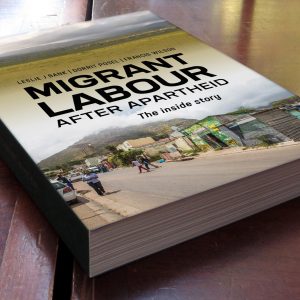All too often, migration is not a voluntary action
In Text Messages this week, Babette’s Feast by Isak Dinesen delves into the minutia of 1870s migration through a Frenchwoman who finds herself living in Norway and denied her artistic passion.
Author:
28 January 2021

Refugees have been a feature of human society from its beginnings. The expulsion of Adam and Eve from the Garden of Eden arguably make that human couple the first seekers of asylum, humankind’s very first migrants.
Envy, acquisitiveness, territorial ambition, greed, war, famine, disease, flood, earthquake, volcano, tornado and the intense heat and extreme cold of climate change have all contributed to forced mass movements of people across the planet. To uproot, turn one’s back on home and journey dangerously in search of sanctuary, peace and the means to a livelihood are not the voluntary actions of free people. Trapped by circumstance and history, our millennium’s migrants are the latest in a continuum of the displaced and the dispossessed.
Related article:
Often, the sheer scale of migration and its accompanying wake of disaster and premature death deadens sensibilities and sympathies. It is probably true that “migration fatigue”, the 21st-century equivalent of “compassion fatigue”, has set in among countries and people taking in and hosting migrants. Reporting on refugees, asylum seekers and migrants risks the metric pitfall of Thomas Gradgrind, the character in Charles Dickens’ Hard Times who reduces everything human to rules and measures and the mechanical application of statistics, and ignores the reality that people are individuals with sentiments and emotions.
Focusing on a particular story often provides a better idea of the larger picture: the microcosm becomes the macrocosm, whereas macro reporting hardly ever takes the reader into the intimate and telling minutiae of the micro. So it is that one of the most affecting refugee stories comes in the form of Danish writer Isak Dinesen’s Babette’s Feast. Dinesen is the pen name of Karen Blixen, best known for Out of Africa, the memoir of life on her coffee farm in the Ngong Hills of Kenya.
A maid-of-all-work
Babette’s tale unfolds in the tiny Norwegian hamlet of Berlevaag, near the fjord of the same name. Here, two unmarried sisters live in one of the town’s characteristic yellow houses, keeping alive the flame of their father, the late and much-revered founder and Dean of a pious ecclesiastic Christian sect.
Dinesen writes: “These two ladies had a French maid-of-all-work, Babette.
“It was a strange thing for a couple of Puritan women in a small Norwegian town; it might even seem to call for an explanation. The people of Berlevaag found the explanation in the sisters’ piety and kindness of heart … And Babette had come to that door 12 years ago as a friendless fugitive, almost mad with grief and fear.
“But the true reason for Babette’s presence in the two sisters’ house was to be found further back in time and deeper down in the domain of human hearts.”
Related article:
Babette serves the sisters quietly, efficiently and with humility for many years. One day she announces that the French lottery ticket she has subscribed to for years has come in: she has won 10 000 francs, a fortune in the early 1880s. The sisters assume that Babette will return to her motherland, but she has a request to make of them. She would like to prepare a special dinner for the birthday of the late Dean, with his now aged and very small flock as the guests.
At first surprised and conflicted – food in their view is merely sustenance, not a staple of celebration or joy – eventually the sisters relent and grant Babette her wish. Through her merchant shipman nephew, Babette orders the ingredients from France. They turn up in barrow loads from the docks: champagne, the finest wines, essential ingredients and – to the horror of Martine and Philippa – a huge turtle.
The alchemy of food
The night of the dinner arrives and the assembled company of 12, including two guests from outside the village, sit down to eat. The 10 from the Dean’s congregation have sworn in advance not to comment on the food or to give even a soupcon of a hint that it might be tasty or that they are enjoying it.
Not so one of the guests, General Loewenhielm, who does not demur. He is astonished by the champagne, the wines, the meal. He recognises each of the courses as having the signature stamp of the great chef who once graced the Café Anglais in Paris. This was before the Franco-Prussian War and the humiliating French surrender on 28 January 1871, when the fall of Paris was imminent.
Loewenhielm recalls dining at the Café Anglais with another officer who told him that the chef is “a person known all over Paris as the greatest culinary genius of the age and – most surprisingly – a woman!”
Babette does not emerge from the kitchen. She does not meet the general, whom she had known as one of the diners at the Café Anglais. But after the party has dispersed, the alchemy of her food having healed decades-long grudges between the diners, Babette tells the sisters that she was, indeed, the chef at the Café Anglais. She had left there and Paris – abandoned a life of artistic fulfilment, recognition and acclaim – because she had been a Communard.
Related article:
She had loaded her husband’s rifle as he manned one of the barricades set up around Paris to try to halt the advance into the city of the Versailles faction, the nominal official government of France after its surrender to Prussia. He had been killed – along with 20 000 Communards, history tells us – and she had fled France devastated and in fear of her life.
A small story of 21 pages that magnifies a big and bloody page of history, and with a superb twist. The sisters ask when Babette will be returning to France. Nonplussed, she looks at them and says, matter-of-factly, that she has no money. Impossible, they say. What of the 10 000 francs?
Ah, well, the price of a dinner for 12 at the Café Anglais was 10 000 francs. To exercise her art and artistry, Babette spent that sum. Besides, she says, “Artists are never poor.”



